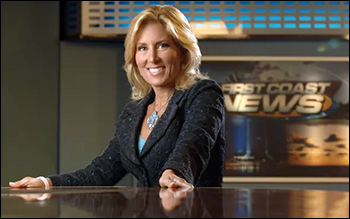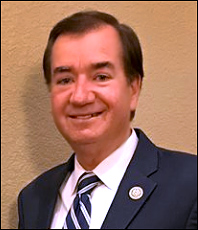By Jim Ellis — Thursday, May 18, 2023
Elections
The media is covering Tuesday’s elections — particularly in Jacksonville, Fla. and Colorado Springs, Colo. — as Democratic or liberal upsets, but much more exists below the political surface that the analysts are either ignoring or missing.To recap, Democratic former local news anchor Donna Deegan scored a 52-48 percent victory over Republican Chamber of Commerce CEO Daniel Davis. The media analysts portrayed the race as an upset since the Republicans held the Jacksonville mayor’s office for the past eight years in the person of term-limited incumbent Lenny Curry.
In actuality, the upset was Curry winning the past two elections, and not Deegan scoring this most recent victory. Though the Republicans now have a 400,000-plus person voter registration advantage statewide in Florida, Democrats considerably outnumber Republicans, by approximately five percentage points, within Jacksonville.
Additionally, the combined minority population in the city, led by the African-American contingent at 31 percent, now comprise a slight majority. Considering that Democrats do much better than Republicans within these communities, a victory for them in the citywide mayor’s race is less than surprising.
Furthermore, Deegan did not emphasize typical Democratic themes in her communication points. Rather, she issued detailed plans on infrastructure, affordable housing, downtown redevelopment, emergency health service, and creating a plan for attracting further state and federal aid for local projects. Therefore, her broad-based plan was more comprehensive and sellable than her Republican opponent’s approach.
In Colorado Springs, Independent candidate Yemi Mobolade, easily defeated Republican former Secretary of State Wayne Williams. Though Mobolade grew up in the socialist country of Nigeria, his campaign talking points were hardly based upon those values.
Mobolade is the city’s Small Business Development administrator who emphasized business, community and leadership development, entrepreneurship, and ministry in his successful mayoral campaign. His was not a left of center message, and though Republicans lost this mayoral race, it was not a liberal who won.
Philadelphia’s Democratic mayoral primary ended much differently than polling projected. Though the data consistently showed as many as five candidates having a chance to win the primary, the final result proved decisive. Former Philadelphia City Councilwoman Cherelle Parker captured the party nomination in rather easy fashion, a 33-23-22-11-9 percent margin over former City Controller Rebecca Rhynhart, ex-City Councilmember Helen Gym, former City Councilman Allan Domb, and businessman Jeff Brown.
All of the politicians are “formers” because Philadelphia has a resign-to-run ordinance in effect for city officials. Therefore, in order to seek a different office than the one held an official must resign before declaring a new candidacy.
In Philadelphia, the analysis coverage was not necessarily miscast, but a key point was glanced over. That is, the candidate furthest to the left and the one who drew the most support from the vocal progressive left movement, which included endorsements from Sen. Bernie Sanders (I-VT) and Rep. Alexandria Ocasio-Cortez (D-NY), was former City Councilwoman Helen Gym. In what is a liberal city, Gym fared poorly, attracting only 21 percent of the vote in what was for her, a disappointing third-place finish.
The winner, Parker, campaigned much differently — as a centrist who said she wants to “stop the sense of lawlessness that is plaguing our city.” She pushed the themes of increasing law enforcement and cracking down on the city’s rapidly rising crime rate. Likely as a result, she attracted much of the Philadelphia political establishment’s support. Term-limited Mayor Jim Kenney (D), while not formally endorsing anyone in the race, admitted to the local media that he cast his own ballot for Parker.
While Republicans lost mayoral elections in two cities they had controlled for the past eight years, the reasons leading to victories for those who won on Tuesday night appear beyond the typical ideological paradigm. As in most elections, success rewarded the candidate(s) whose messages best met the voters’ needs. Once again, we see that this is the lesson future candidates need to understand.


